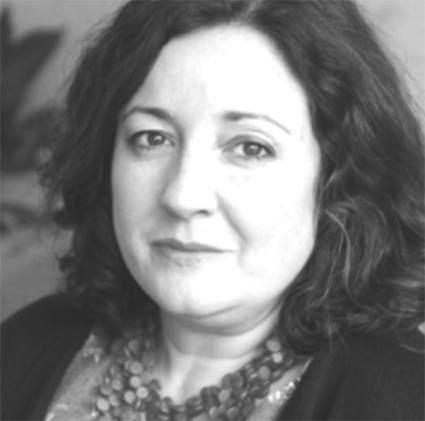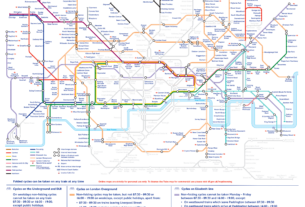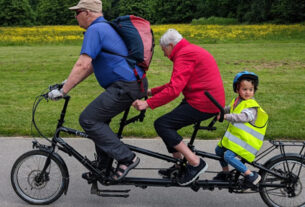
We are delighted to have the opportunity to interview Cllr Adele Barnett-Ward, Caversham Ward, Lead Member for Neighbourhoods and Communities.
RCC: What are your dreams and visions for cycling in Reading?
Adele: I want cycling to be normal. I’m a member of the Labour Cycles campaign group, and our strapline is ‘For the many, not the brave’. I want Reading to be a town where the sustainable transport choice is the obvious, most convenient and most enjoyable way to travel around.
In many cases that will be cycling – cycling on dedicated infrastructure in busier areas and on filtered streets in residential areas – but it also means making walking safe, convenient and pleasant, and providing dedicated space for public transport to ensure reliable journey times.
RCC: What single thing would make the biggest impact to transport in Reading?
Adele: Money. We’re at the point now where the political will is there.
We have a target of being carbon neutral by 2030 and we know we have to significantly reduce car use to reach that. That means increasing the use of public transport, walking and cycling, as well as encouraging smart solutions like more home-working.
Our Local Cycling and Walking Infrastructure Plan, and our new Draft Local Transport Plan, are clear statements of intent, but without serious levels of funding – either specific active travel funding (above what has recently been re-announced by the government) or the return of some form of the Local Government Grant, then we’re very limited in what we can do.
I talk about Waltham Forest a lot but they were given £27m to fund their changes. For perspective, that is over a hundred times more than RBC’s allocation of the government’s emergency active travel funding.
RCC: How do you think Reading Borough Council should harness the street knowledge the town cyclists have in plans to reallocate road space for walking and cycling?
Adele: I think the Cycle Forum session we had on the LCWIP was useful and I would like to see more of that sort of engagement. Something that I have been trying to achieve with the Cleaner Air and Safer Transport (CAST) forum is to break down the ‘Them & Us’ dynamic and work more openly and collaboratively.
I have been to quite a few active travel events with Brian Deegan and I like his methods for grassroots engagement. Recently someone sent me the details of an online tool for crowdsourcing ideas and that looks interesting, too.
There is some understandable wariness about raising people’s expectations by holding too many of these exercises in advance of having funding, though. The ongoing issue of the schemes on the RCC ‘town centre list’ shows how if you collect up lots of great ideas and can’t quickly fund them people can become frustrated.
RCC: what are your views on transport change due to the Covid-19 crisis?
Adele: This has been such a bleak time. My workload has been higher because of the pandemic, so I have not been one of those people who has found them- selves with extra free time, but I do see other people out walking and cycling more and that is heartening.
People who had told me they would never feel safe cycling in their town or city are getting on their bikes. It is vital that we build back better from this, and keeping people walking and cycling is key.
I know that there’s some concern about some of Reading’s proposed temporary active travel measures – I do find it ironic that I have spent two years being told RBC move too slowly on schemes and I am now seeing criticism resulting from us moving fast and announcing our intentions before we have the plans drawn up – but they are indicative of a new approach: we’re going to live-test these schemes, and alter (or even remove) them if they don’t work.
There’s also a mix of long-term plans being accelerated – such as the cycle lanes on Reading Bridge, and reallocating the left hand lane of London Road – and temporary schemes that react to the need for social distancing and that we do not expect to retain post-Covid (like Gosbrook and Westfield Roads).
RCC: What do you hope to achieve in the Cleaner Air and Safer Transport Forum in relation to the Cycling Strategy?
Adele: The CAST forum is about building consensus across different stakeholder groups and different methods for reducing air pollution and having a town that is designed around people, not cars. I see cycling as part of that bigger picture, not an end in itself.
I started cycling (after a break of over two decades) because it was a cheap, non-polluting, convenient way to get around town, and if we’re going to achieve the modal transport shift we need then we need more people like me getting on bikes: not sporty or intrepid (I describe myself as a ‘sedate and risk-averse’ cyclist), not cycling as an end in itself, but as the most practical and pleasant way of getting from A to B.
I want to see the RCC and other cycling groups engaging with CAST and being part of that wider discussion, not just in the cyclists-only space of the Cycle Forum.



Congratulations, Adele. Keep up these efforts. We want a Reading where the default mode of transport is by foot and cycle. Key issue is to make it more convenient for children to get to school that way. The School Run is a major contributor to congestion and thus pollution etc. It is doing more harm to children’s health sitting in the polluted atmosphere of a car in a traffic jam than any risk of accidents. So reintroduce cycle training and children will be healthier and safer.